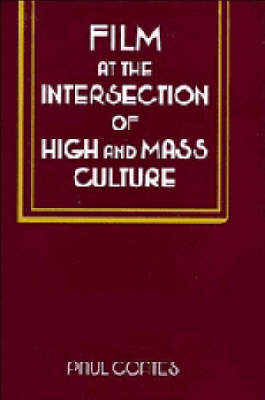Cambridge Studies in Film
2 total works
The Gorgon's Gaze is an interdisciplinary study of recurrent themes in German cinema as it has developed since the early twentieth century. Focusing on pertinent films of the pre- and post-World War II eras, Paul Coates explores the nature of expressionism, which is generally agreed to have ended with the advent of sound cinema, and its persistence in the styles of such modern masters of Film noir as Orson Welles and Ingmar Bergman. In considering the possibility of homologies between the necessary silence of pre-sound cinema and the widespread modernist aspiration to an aesthetic of silence, Coates relates theories of the sublime, the uncanny, and the monstrous to his subject. He also reflects upon problems of representability and the morality of representation of events that took place during the Nazi era.
Film at the Intersection of High and Mass Culture analyses the contradictions and interaction between high and low art, with particular reference to Hollywood and European cinema. Written in the essayistic speculative tradition of Walter Benjamin and Thedor Adorno, this study also includes analyses of several key films of the 1980s. Tracing the boundaries of such genres as film noir, science fiction and melodrama, it demonstrates how these genres were radically expanded by such film makers as Neil Jordan, Chris Marker and Georges Franju. This work also reflects on kitsch, the star system, racial and gender stereotypes and the nature of audience participation. While defining the conditions under which the symbiotic relationship between high and mass culture can be cross-fertilising, the study stresses their inevitably contradictory characteristics.

